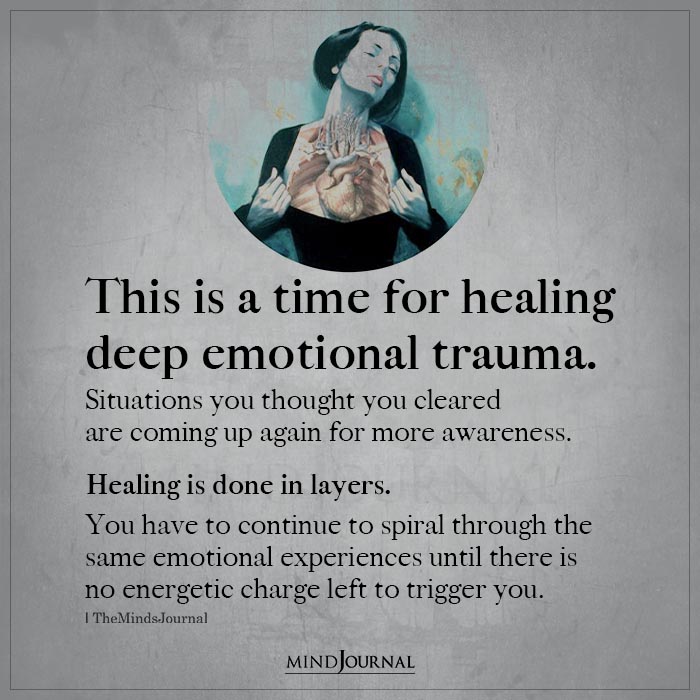Toxic childhood experiences and a rough childhood can make you feel like there will never be light at the end of the tunnel. But that’s not true. You can be happy despite having unhappy childhood memories. Let’s explore how to move on from a difficult childhood.
KEY POINTS
- The past is not necessarily prologue.
- Unhappy childhood memories can be rewired; hidden wounds can be healed.
- Mindsets that favor happiness can be cultivated.
This post is part of a series on adverse childhood experiences. Read the other parts here.
Life is difficult, even under the best of circumstances. It can be especially challenging for those who have survived adverse childhood experiences, or ACEs—such as abuse, neglect, or living in a chaotic home.
ACEs greatly increase the risk for a wide range of mental conditions (such as depression, anxiety, and post-traumatic stress disorder), as well as medical problems ranging from autoimmune disorders to heart disease and cancer.
However, a difficult past need not result in an unhappy future. We have learned much from resilient survivors who have learned how to change the trajectories of their difficult pasts.
This post explores ways to create a brighter future, despite the pain you’ve experienced in the past.
Related: How Do Adverse Childhood Experiences Shape Our Psychology?
How To Be Happy After Having A Rough Childhood? 3 Things You Can Do For A Brighter Future
1. Acknowledge and heal the hidden wounds from toxic childhood experiences.
Troubling memories from ACEs reside not so much in the verbal, logical left brain, but in the non-verbal, visual right brain, with its strong connections to the emotional and survival regions of the brain.
This understanding explains why talk therapy is not usually the best starting place for healing from ACEs.
Newer strategies can be very effective for healing (see Schiraldi, 2021). For example, body-centered strategies, in a bottom-up way, first calm the body, which then calms the brain’s emotional and survival regions, restoring regulation to dysregulated emotions and bodily reactions to stress.
Distressing memories from childhood that are stuck in the brain can then be rewired, so that they no longer intrude into the present in unpleasant ways. To stabilize and strengthen the nervous system, the survivor might begin by imprinting images that simulate near-ideal childhood attachment experiences.
Newly developed strategies can then soothe and replace the images of old childhood memories, along with their distressing emotions and bodily reactions.
Although recalling memories related to childhood can be uncomfortable, the healing process is not usually as difficult as feared. Many say, “Why didn’t I do this sooner?” We remember only long enough to allow the brain to change painful memories.
A skilled clinician can guide you through the healing process quickly and with minimal discomfort. Alternatively, some will choose to try self-managed healing strategies, reserving the option to seek the help of a skilled mental health professional if needed.

2. Adjust your attitude toward suffering.
Suffering can overwhelm and crush you—or it can strengthen you. Some have figured out how to turn disaster into triumph.
As I write this, I’m thinking of the survivor of the worst child physical and sexual abuse I’ve ever seen. He resolved at an early age that he would not become the kind of person that his parents were.
He became a beloved parent and spouse, and a cherished friend to many. At age 83, he recently survived life-threatening surgery, after which the doctor told him to expect feelings of depression. He replied, “I don’t get depressed. Life is too beautiful to allow myself to get down.”
Some begrudge the suffering life brings. Others accept suffering and use it to grow. For example, if we have an open heart, suffering can cause us to grow compassion for our fellow travelers who are suffering. Suffering might galvanize us to fight against evil and to bring about good in the world.
A hallmark of happy people is living a purposeful life. Certainly, finding a cause that makes the world a bit better, and that lifts others, can emerge from the smoldering embers of suffering.
The eighty-three-year-old survivor of abuse mentioned above said, “Should I continue to live, I’ll continue to find ways to help people.” That mindset is an important ingredient of his happiness.
Sometimes, after what seems like interminable suffering, an inner smoldering ember ignites. We think, “I’ve survived, and I resolve to never let life’s hard times defeat me. I choose happiness.”
My colleague, Stephen L. Brown, Ph.D., had been fit, active, and a highly effective university professor until a debilitating illness struck, leaving him depressed and exhausted by the slightest exertion.
After every conceivable medical treatment failed to cure him, he finally accepted his limitations and determined to live happily despite his condition.
His illness led him to write a beautiful book for his family on being happy despite life’s inevitable suffering (Brown, 2023). He turned his suffering into a masterpiece.
No one would choose to suffer. Yet coming out of the other side of suffering, many say that they are thankful for suffering’s lessons, and would not trade them for anything. Suffering can help us see what matters most: what makes us happy.
Related: How Adverse Childhood Experiences Affect Emotional Intelligence
3. Look for life’s loveliness.
When down, look up. The clouds, sunshine, the moon, and nature put on a show for us that costs nothing. There are beauties, causes, adventures, inner strengths, wholesome pleasures, and good people yet to be discovered. Keep looking.
To a great degree, happiness results from the choices we make—patiently, kindly, courageously, and resolutely.
References:
Brown, S. L. (2023). What Makes God Happy? Huntsville, TX: Stephen L. Brown.
Schiraldi, G. R. (2021). The Adverse Childhood Experiences Recovery Workbook: Heal the Hidden Wounds from Childhood Affecting Your Adult Mental and Physical Health. Oakland, CA: New Harbinger Publications.
Written By Glenn R. Schiraldi
Originally Appeared On Psychology Today










Leave a Reply